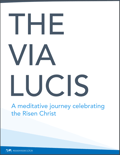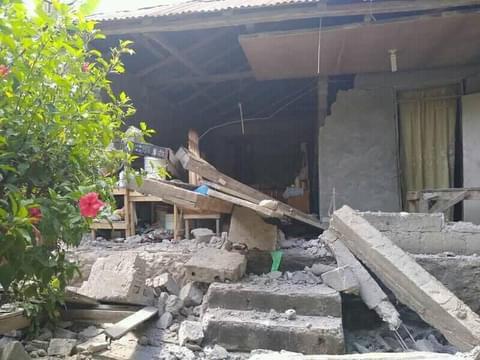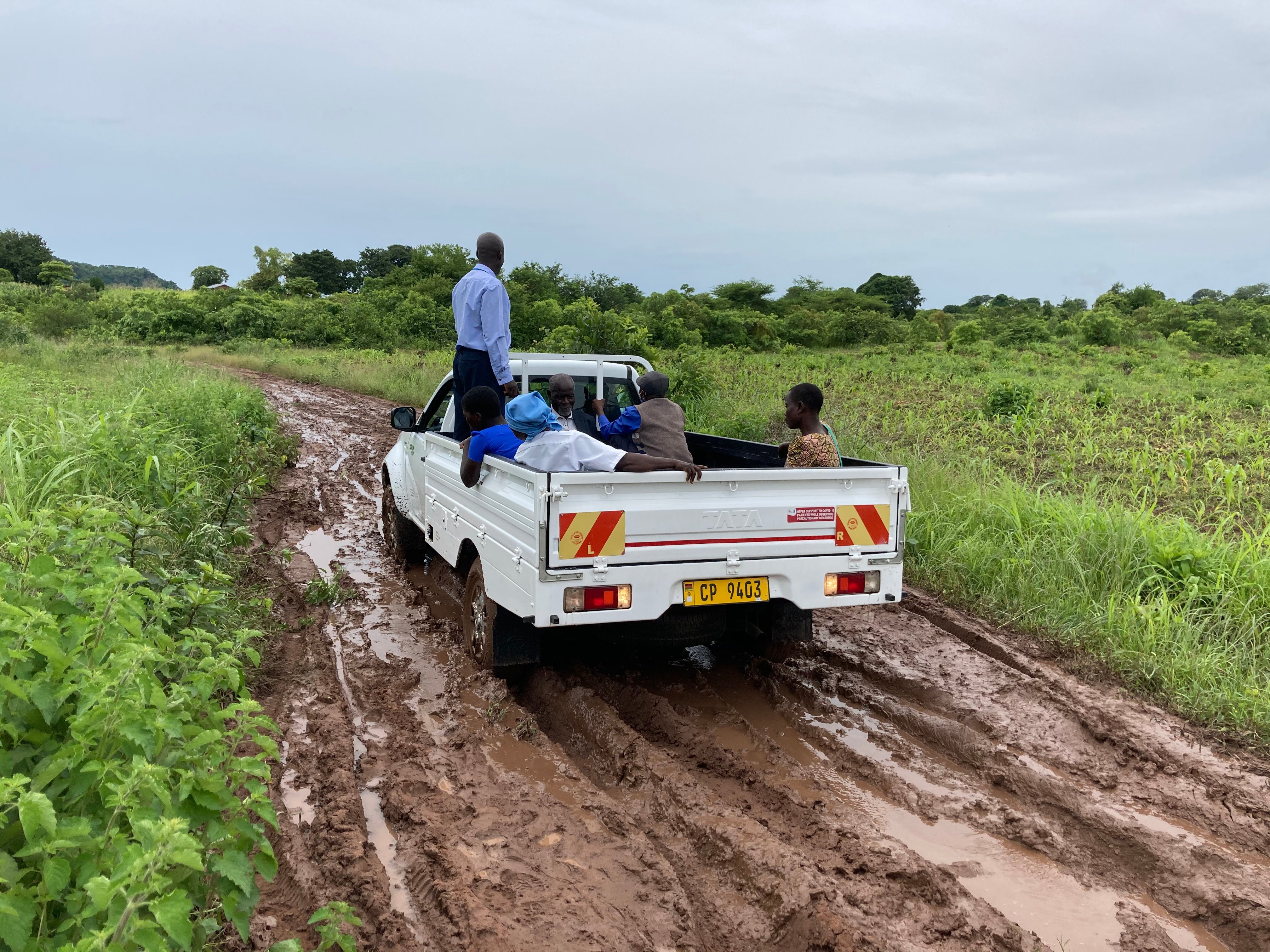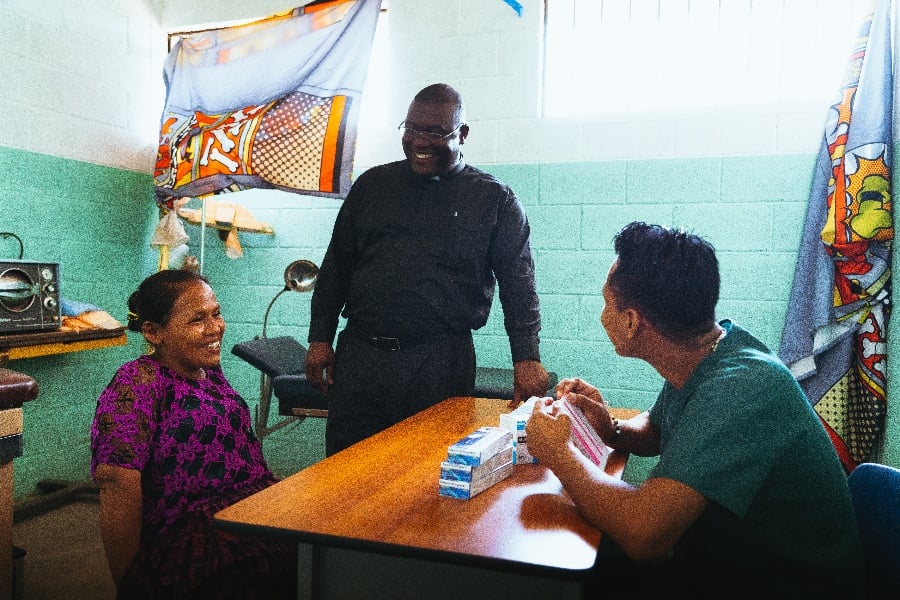 Easter is a season of hope, the theological virtue that is sustained by our faith in Christ’s ability to conquer sin and death, as He did in the Resurrection. It can be difficult to maintain this hope in the face of the persecution, famine, poverty, and violence that so many of our Christian brothers and sisters throughout the world suffer. This is why our missionaries share their stories--so that the whole Church may be encouraged and uplifted by the concrete ways that the Lord is moving, even in the darkest places. Below are three powerful accounts of hope in our missions in the Dominican Republic.
Easter is a season of hope, the theological virtue that is sustained by our faith in Christ’s ability to conquer sin and death, as He did in the Resurrection. It can be difficult to maintain this hope in the face of the persecution, famine, poverty, and violence that so many of our Christian brothers and sisters throughout the world suffer. This is why our missionaries share their stories--so that the whole Church may be encouraged and uplifted by the concrete ways that the Lord is moving, even in the darkest places. Below are three powerful accounts of hope in our missions in the Dominican Republic.
Fr. Zébédée Lobo: Bringing hope to the sick
Fr. Zébédée reflects that his work with the sick in the town of Grosse-Roche has been one of the most rewarding and hope-building experiences as a missionary:
"Roughly two months after my arrival in Grosse-Roche, a young lady called Pierre Joceline came to me after the morning Mass. She had a grievous expression and asked me to please come visit and pray with her neighbor, Mr. Antenor Tello, who had been bedridden for several months. We gathered a small team to carry out this visit: myself, the sacristan, and two other devoted parishioners...
...Mr. Tello is a 77-year-old man, with his wife, Mrs. Lama Bertrice, being of roughly the same age. God blessed them with eight children: six girls and two boys [all of whom are now grown and married]...Mr. Tello was the family’s only breadwinner. He was a strong and courageous man who used to work the farm day in and day out to respond to the needs of his family. But now he is blind, and one side of his body was paralyzed by a stroke. His wife, who used to go farming with him, is the only one taking care of him each day. The elderly couple essentially lives alone and abandoned...
Yet, despite their pains, suffering and isolation, Mr. Tello and his wife are strong because they feel God standing by their sides. Mr. Tello whispered to me one day when we finished praying with them and were about to head back home. He said, “Thank you God because you have come to visit us. Though we feel weak and abandoned you have come to us and brought us courage, strength, and joy. You are the only one we desire in life now.” That expression encapsulates why Mr. Tello and his wife need visits and prayers: why anyone who is sick or isolated or suffering needs visitation and prayer. It is to affirm God’s presence and continued love and care for them."
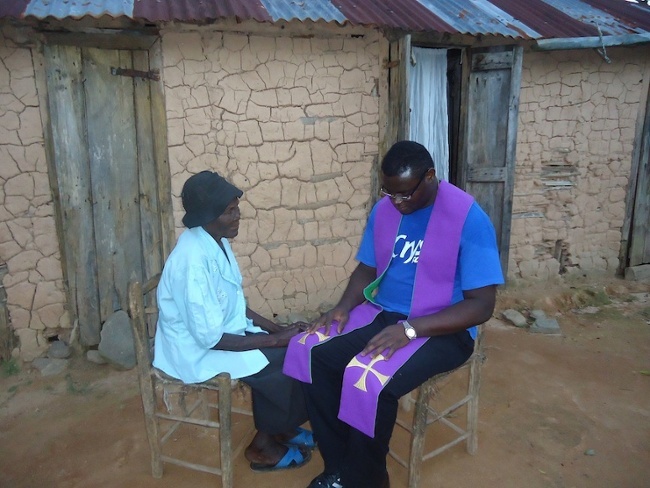
Fr. Audrey Muñez: Proclaiming Christ’s hope to the youth of Santo Domingo
Fr. Audrey was a bit skeptical when working with teenagers and young adults in Santo Domingo; he wondered if they would show any interest in the faith amidst all of the distractions of modern life. Even in the Dominican Republic, cell phones are considered a necessity and use of social media among the youth. To his delight and surprise, he found that the young people he worked with were often the driving force behind parish life:
"Quite often, the youth in my parish are the ones animating the congregation during our liturgical celebrations, because the majority of them are members of our choir groups. They are very service-oriented individuals and always make themselves available to help with the upkeep and cleanliness of the church and its surroundings. When needed, they have helped to cut the lawn and dispose of garbage from the parish grounds. Their readiness to help their own church is an inspiring experience: one that drove me to strive more in my ministry to respond fully to their social and spiritual needs."
And even though Fr. Audrey is still concerned about the negative effects of social media, he is hopeful that the youth will learn to use the internet to share their faith with others:
"In fact, the Church of today is now using such tools to spread Jesus’ message of peace, love, and justice to all parts of the world. The word of God is literally spread across the planet in this way––something that was discussed as a concept a dozen years ago when I was a student."
We have even seen how Pope Francis makes use of social media, and his activity generates great attention not only from Catholics but also people of various cultures and religions around the globe. More importantly, that activity attracts young people who can recognize themselves in his actions and openly claim their identity as Christians and as Catholics.
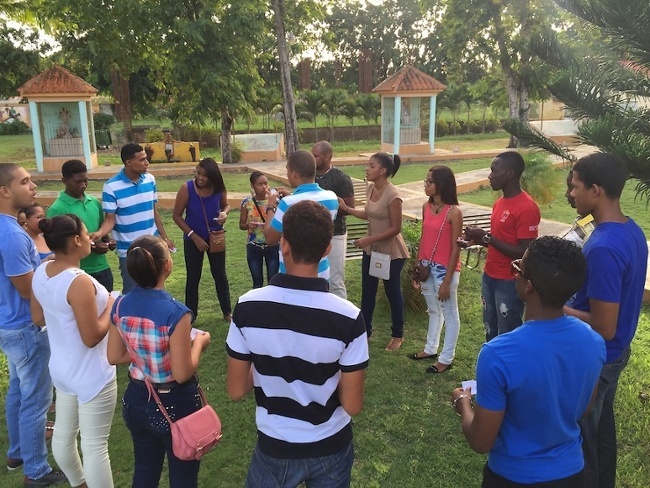
Fr. Paul Mbuyi Kasonga: Hoping in Christ in the Bateyes
Fr. Paul is privileged to work in one of the bateyes, or “company towns” made up of Haitian migrant sugarcane workers and their families. The housing in these towns is primitive, to say the least:
"There is no running water, no latrine, little electricity, and no basic infrastructure (roads, sewers, etc.). The bateyes were erected in the sugarcane fields, far from “regular” Dominican life. Life there consists of struggling for basic human needs, such as: health care, clean water, food and education. It is a difficult life and there are many social problems in this milieu. Though it may seem that choosing to work and live in this manner is unsavory, many of the workers and families prefer life here in the bateyes to the harsh socio-economic conditions and difficulties faced in Haiti. Many here are actually the descendents of migrant workers who never left decades ago."
Despite these depressing conditions, Fr. Paul sees much cause for hope among his parishioners as they participate in a new pastoral program, which aims to change culture through Evangelization:
"[The program involves many elements:] the meaning of co-responsibility, analysis of reality, Bible study, current events in relative missionary endeavors, the animation and strengthening of the basic ecclesial communities, group dynamics, forming catechists and youth leaders to organize the catechesis for children and the youth, participation in the pastoral meetings on the zone and diocesan levels, and many more. Also, the basic ecclesial communities meet with various community leaders to provide training, education, spiritual encouragement, and resources in legal and social work, aimed at empowering community members to collaborate with one another to raise their children and reach their goals of self-sustainability. Our faith celebrations, along with the grace of God, also provide enthusiasm for the new Evangelization."
In the midst of the real difficulties and challenges they face in life, the basic ecclesial communities of the bateyes are proud to proclaim their faith. They put their hope in Christ...Life is hard in the bateyes, but the basic ecclesial communities remain vibrant and filled with hope for the future. Your support helps us to proclaim that, with faith in Christ, everything is possible.
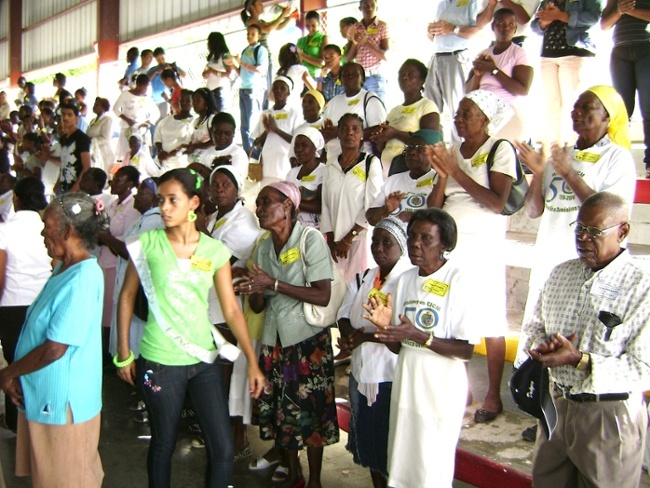
Join us in prayer this Easter season by downloading our new devotional series celebrating the Risen Christ.



